German GP: Historic Hockenheim is back - but for how much longer?
- Published
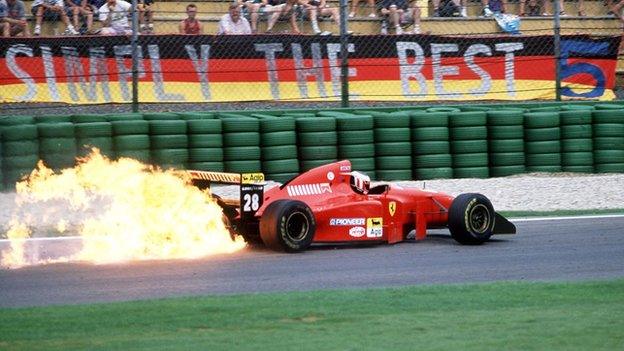
Something strange has happened to Formula 1 in Germany.
The German Grand Prix was once a cornerstone of the calendar, a historic race on a unique and special circuit, packed out with enthusiastic spectators. But that status is under serious threat.
For one thing, the demise of the Nurburgring - which shared the hosting duties - means the event is held only once every two seasons. And its future beyond the end of Hockenheim's current contract in 2018 is uncertain to say the least.
The German GP used to be overrun with fans - and not just in the Michael Schumacher era; way before then, too, going back decades, from the golden days of the old Nurburgring and its 14 unbelievable miles and 180-odd corners through the Eiffel forests, and into the Hockenheim era.
Now, though, the race seems to have lost its appeal.
The last time it was held, in 2014, only 50,000 or so fans turned up - and Hockenheim's atmospheric concrete 'stadium' section, which used to be packed, was dotted with gaps.
This year, organisers are hopeful of reaching the 60,000 they need to break even. But that's still less than half the numbers who thronged Silverstone for the British Grand Prix earlier this month.
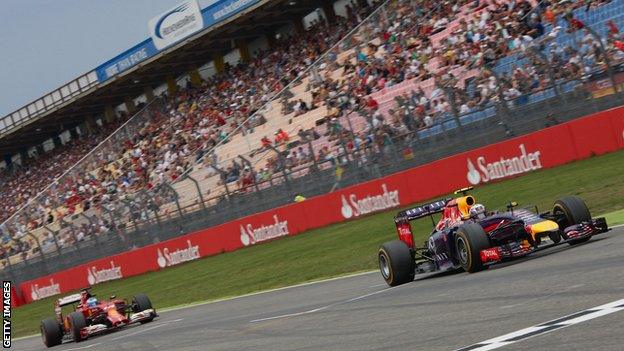
Daniel Ricciardo and Fernando Alonso blast past a thinly-populated grandstand at the 2014 German GP
Is it down to seven-time champion Schumacher's absence? If so, what did the German fans find so alluring about him that they do not now about four-time champion Sebastian Vettel, title challenger Nico Rosberg and a dominant home Mercedes team?
Is it part of the perceived general decline of F1's appeal to younger audiences? If so, why are crowds going up at Silverstone, and staying strong at other historic venues, such as Italy, Canada and Brazil? And why are German TV figures rising, not declining?
Or is it that Hockenheim has had it character largely removed, with its long, flat-out blasts out into spooky pine forest replaced by yet another characterless 'Tilke-drome' from Bernie Ecclestone's favoured track architect?
It's not a completely terrible race track. The long, curving straight between Turns Two and Six provides for decent overtaking opportunities, there are a couple of demanding fast corners and the racing is usually OK, sometimes very good.
But it lacks spirit, challenge, jeopardy and, most of all, a sense of specialness - a reason to be excited. Just as, to a lesser extent, did Magny-Cours before the French Grand Prix - the oldest race of all - dropped off the calendar after 2008.
Is Germany going the same way? One has to hope not. But keeping it on the calendar will not be easy.
Andrew Benson, Chief F1 Writer
The circuit
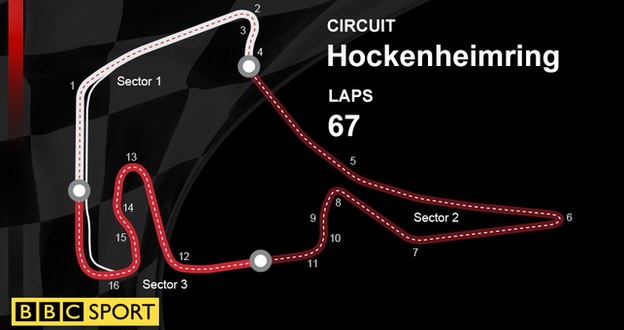
The old flat-out blast through the forest
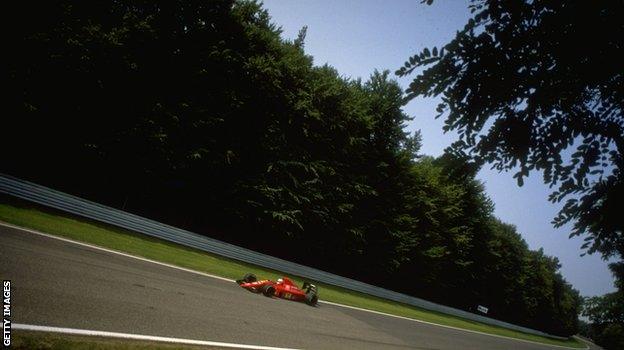
The current Hockenheim circuit was dramatically shortened in 2002 from 4.2 miles to 2.7 miles. Previously it was a large oval where drivers left the stadium start-finish section and thundered down long straights through dense forest, interrupted only by three chicanes (as demonstrated by Nigel Mansell in 1989). The old layout was felt to be unsafe and inaccessible for spectators, but offered excellent overtaking opportunities and thrills for TV audiences.
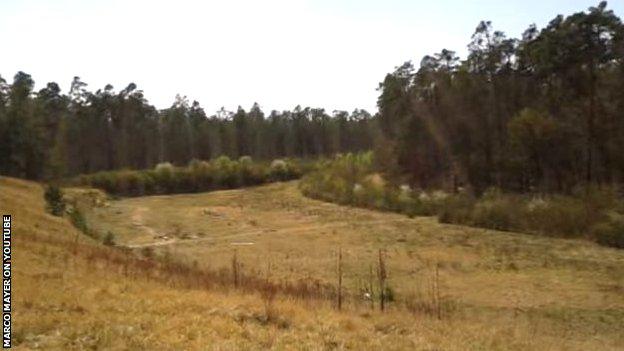
The forest in 2012: Nature has reclaimed what was once the famous Ostkurve section.
Schumi stands alone
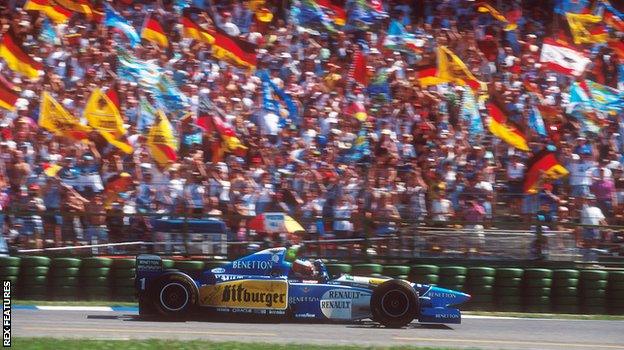
Michael Schumacher thrilled his adoring home crowd by winning the German GP on four occasions, the most by any driver. His first victory, seen here, came in 1995 while he also went on to triumph in 2002, 2004 and 2006.
Rosberg won last time out
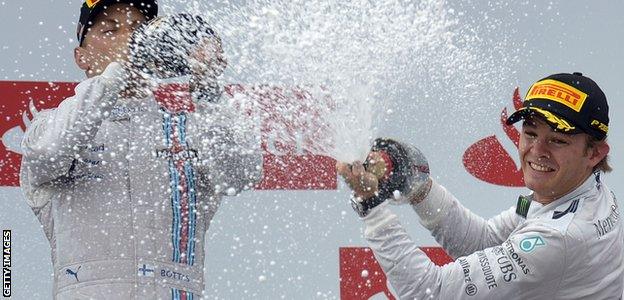
The German GP returns after being absent from the calendar last year. It was due to be staged at the Nurburgring but new owners would not pay the hosting fee. With Hockenheim unable to agree terms with F1 commercial boss Bernie Ecclestone to step in, one of the sport's most historic races did not take place. It was won by Germany's Nico Rosberg - at Hockenheim - last time out in 2014.
Massa hoping for an upturn in fortunes
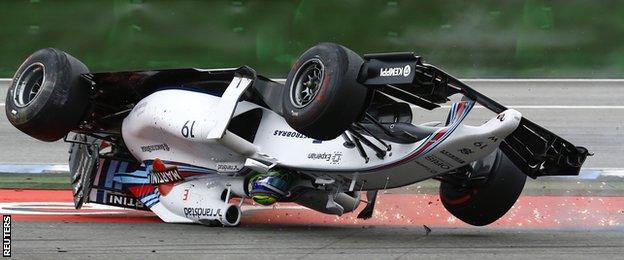
Williams' Felipe Massa and McLaren's Kevin Magnussen collided at the first corner in 2014, tipping the Brazilian's car upside down.
'Fernando is faster than you'
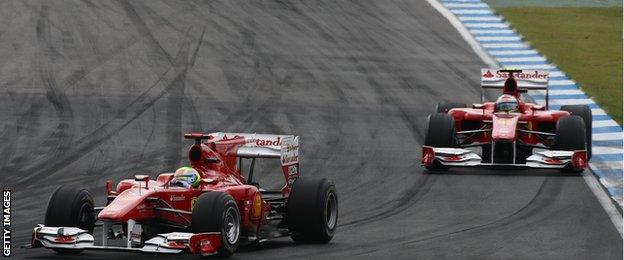
Massa's not always had a happy time at Hockenheim. In 2010, while leading then Ferrari team-mate Fernando Alonso, his race engineer, Rob Smedley, told him over team radio: "Fernando is faster than you. Can you confirm you understand?" The Brazilian responded by letting Alonso through at Turn Six moments later. It was felt to be a coded team order and Ferrari were fined $100,000 for breaching sporting regulations.
Lighting up part one

In centuries past tobacco plants were grown in the rural area of Hockenheim and the town is home to a Tobacco Museum.
Lighting up part two
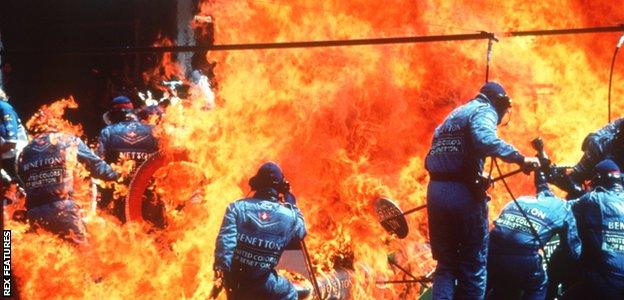
The Benetton of Jos Verstappen - father of Red Bull's Max - spectacularly caught fire after a fuel leak during a pit stop at the 1994 German GP. Verstappen, and some of his mechanics, escaped with only minor burns.
'Right, we want you to get us some close-ups'
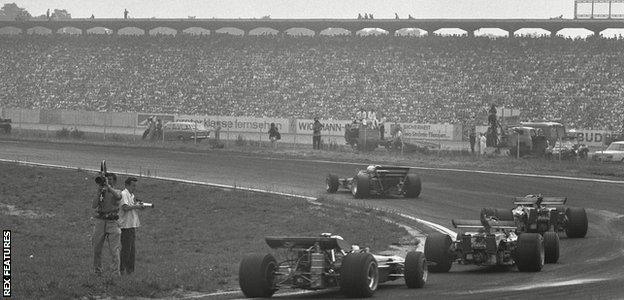
Hockenheim first staged the German GP in 1970, when the attitude to safety in the sport was rather more laissez-faire than today. These intrepid cameramen must have got some great shots, but it wasn't just the drivers who were risking their lives in those days.
'Shall we just send it to the scrapheap?'
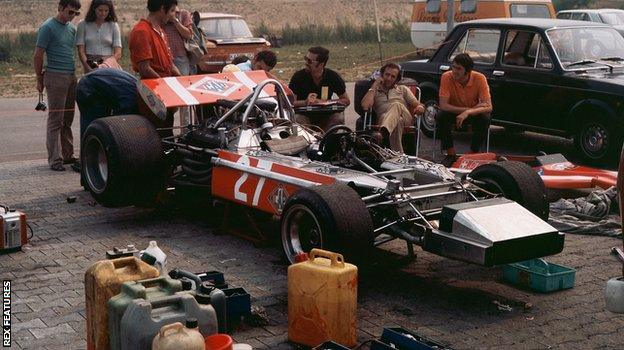
Swiss driver Silvio Moser failed to qualify his Bellasi for that first Hockenheim F1 race in 1970. And, judging by the somewhat relaxed approach to car preparation, we're not surprised. This motor appears to have serious problems.
Subscribe to the BBC Sport newsletter, external to get our pick of news, features and video sent to your inbox.
- Published18 December 2015

- Published8 August 2017

- Published13 May 2016

- Published26 February 2019
